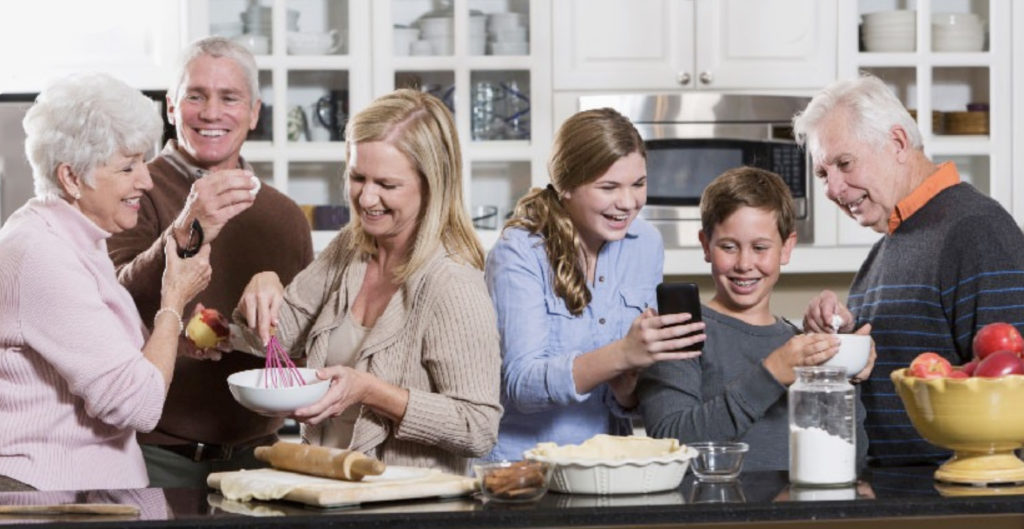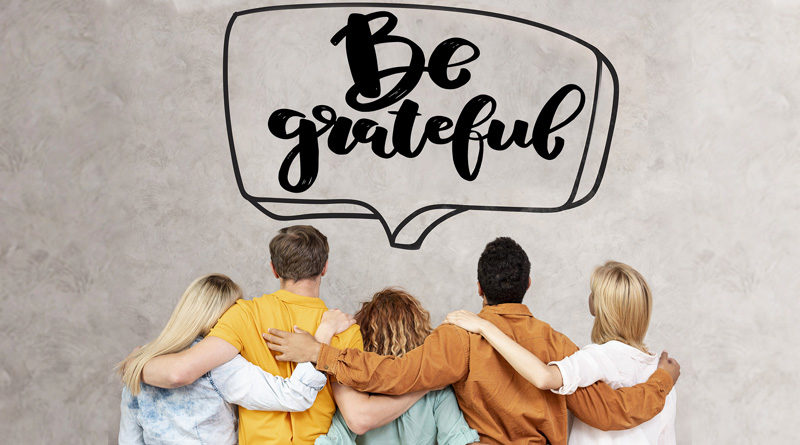Gratitude: A Personal Look at Adversities
Learnings and Testimonials from the Pandemic
By: Grecia Romero
Challenges and gratitude do not seem to walk hand in hand. Fear, anxiety, uncertainty, and even pain often best describe difficult situations, and it is likely that more than one person has experienced all of these feelings at the same time after living through a pandemic for more than a year and a half.
A look at the testimonies and learnings of several of our readers during this time of global difficulty can be very useful for personal reflection on gratitude, an invitation that the month of November brings along with the celebration of Thanksgiving.
Valuing Life, Health, and Loved Ones
Yetzy Sarmientos had to receive the news of the death of her father from Covid while living in a distant country and without being able to travel to be present for his last goodbye. She shares the pain of millions of people who saw their relatives enter hospitals hoping for their quick recovery and yet received a different response: “The complication of his health condition was unexpected. At no time did it cross my mind that he could die and that I would not be there with him; it was a very hard blow.”
 Despite living this grief at the same time that she lost her job due to the pandemic, she comments with hope that these are tough stages that must be lived through, accepted, and learned from. This painful experience also taught her about valuing her life, family, and friends. “I thank God for the lessons that I have gotten from it. Many times we do not take advantage of the moments, nor the people that we have next to us. Coexistence may not be easy with family, co-workers or friends, but life goes by very fast and it is very easy to get caught up in the day-to-day and in the negative aspects of routines.” Yetzy concludes by saying that waking up in the morning healthy is already a huge reason for being thankful, regardless of the losses one may have.
Despite living this grief at the same time that she lost her job due to the pandemic, she comments with hope that these are tough stages that must be lived through, accepted, and learned from. This painful experience also taught her about valuing her life, family, and friends. “I thank God for the lessons that I have gotten from it. Many times we do not take advantage of the moments, nor the people that we have next to us. Coexistence may not be easy with family, co-workers or friends, but life goes by very fast and it is very easy to get caught up in the day-to-day and in the negative aspects of routines.” Yetzy concludes by saying that waking up in the morning healthy is already a huge reason for being thankful, regardless of the losses one may have.
Malby Rojas, an intensive care nurse specialist, has witnessed the suffering of hundreds of critically ill patients during the pandemic on the front lines. She agrees with Sarmientos on the fragility of life and the importance of appreciating health and loved ones. “This pandemic has taught me that health is the greatest wealth that a person can have and there is no money to buy it. Today we are here but tomorrow we do not know. It seems that we are always busy and often have excuses to put off a call or text message, but really we don’t know if or when we’ll be able to again. Now I treasure sharing with my loved ones much more.”
Gratitude for the Resources Available
Perhaps something that was very evident during these months has been valuing the importance of the technological, scientific, and natural resources that are available and are often taken for granted.
Ingri Espinel, who lives in Panama and had a long time of isolation due to government regulations in her country, contrasts the situation of the United States and what she had to live. “The United States is a very economically strong country, where vaccines were available with great speed. Most families and children, especially, were able to restart their work and school activities thanks to the use of technology and a school system that allowed this to be done. Not all countries have these resources. It is very sad to see how there have been countries where children received classes by radio because their homes did not have a computer or internet connection, or the country did not have the means to help its population in that sense .”
Technology has also benefited those who have been isolated while suffering from the virus, as was the case of Marjorie Granados: “I am very grateful for the technology we have. Not only did it allow me to be close to my loved ones and to celebrate special occasions like birthdays, but it also helped me to have food at my doorstep without having to be in contact with other people or spread the virus to others.”
Once she recovered from contracting the virus, Granados was able to undertake a comprehensive health plan that included food, exercise routine, and even enjoying the outdoors. “That moment taught me to value and enjoy my neighborhood walkways, hiking places, and parks that I had not enjoyed before because of my busy schedule.”
Gratitude has no limits
The isolation made it clear that the world can work as a team and share resources and talents. As a saying in Spanish goes, “In difficult times, solidarity can save us”, and that was true for Liz Blanco who has a new perspective of gratitude on her life while sharing what she has- from knowledge to material positions: “I no longer keep anything. This pandemic opened my heart to the needs of others and to share. I no longer reserve things for the special moment. The special moment is now.”
This was also the attitude of Carmen Romanach, who has dedicated her life to serving others and dedicatedly bringing hope by sharing her faith. “During the time that the churches were closed, I had the gift of helping as a volunteer in the preparation of the Masses that were broadcasted online.” This allowed her to be very active and to have a positive and peaceful attitude that she transmitted to her family and friends.
In Lisette Hermoso’s opinion, difficulties can be better overcome when one tries to have a positive mindset. “It is possible to find the brighter side of the stage even when everything seems dark.”
How one reacts to each circumstance is a personal decision, but gratitude always brings many benefits. Being grateful is not an emotion; it is a lifestyle that can be learned and cultivated by taking the first step of determining what we have and why it is important. May this month of November be a good starting point to have an appreciative perspective of what surrounds us.

